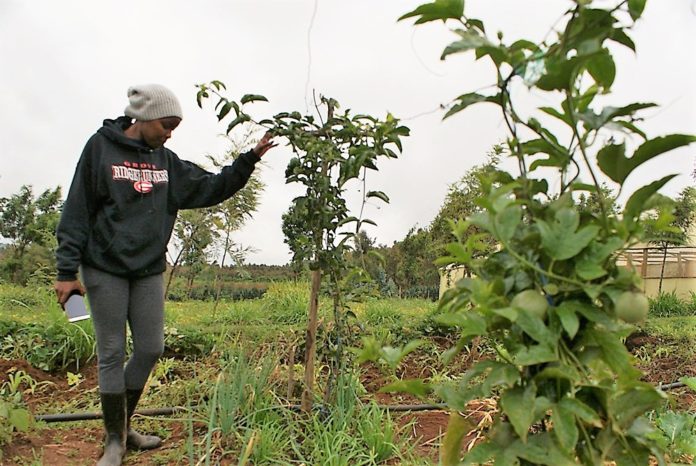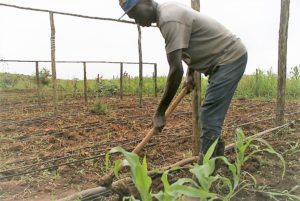
By Katheru Njagi
NDEIYA: Until she was introduced to online shopping in 2016, Sylvia Kuria detested the moments she left the comfort of her home to buy fresh food supplies in Nairobi’s city’s packed shopping malls.
Kuria had a newborn, and the thought of leaving the baby under the care of a house help when she went shopping always made her fearful something bad might happen to her child.
Luckily, a friend visited her at home one day and while chatting about the problems the modern woman goes through while trying to balance between family and working life, the solution she had been missing popped up online shopping.
“My friend showed me how one can order for goods from retail malls using a smartphone and have them delivered at home,” said the mother of three, adding that she eventually became a smart shopper, and even took the opportunity a step further.
“I thought about my organic farming business where I could apply this technology to deliver farm produce to customers at home instead of them going to the market to buy goods,” she said.
She discussed the idea with her husband. He supported it and online marketing became the new face of Sylvia’s Basket Ltd, a company founded and registered in 2014.
They developed a website and have been doing home deliveries to customers from their five-acre farm in Ndeiya, central Kenya, ever since.

Sylvia is among more than 8,000 farmers in Kenya adopting technology to market produce from the farm as a way of reducing food waste. Smart shopping is also reducing time and money spent by customers going to shop.
According to the Principal Secretary at the Ministry of ICT Jerome Ochieng’, Kenya is moving towards a smart government aimed at making all transactions online. This digital transformation, he said, is expected to reduce costs, eliminate corruption, and increase efficiency and effectiveness.
“The agriculture sector in Kenya is expanding at a rate of five percent every year,” said Ochieng’, during the digital farmers conference in May. “Farmers need to be part of this digital revolution so that they can play a role in ensuring there is no food waste from the agriculture sector.”
Ochieng’ said over 40% of food is wasted from the point of harvest to when it is consumed. This is due to lack of proper facilities to store food after harvests, and during a sale at the market, making it go bad.
At the Sylvia’s Basket farm, a visitor is taken by the activity going on here. Two farmhands are busy tilling a strip of the farm in preparation for planting.
A smartly dressed lady in her early 20s leads the way to a small office on the upper side of the farm. It is from here that all accounting, farm management, marketing and even receiving of visitors is done.
“Here we do organic farming where we produce tomatoes, broccoli, cauliflower, cabbage, lettuce, and onions, among others,” said Caroline Wanjiru, the farm manager in an interview. “A customer just needs to log on to our website and place an order by clicking on the price login tab.”
The customer also leaves their contact details, said the 24-year-old, adding that after the order is placed according to size, quantity, and variety, produce is harvested and immediately taken to the customer as basket delivery.
Wanjiru, who is a graduate of Administration and Management in Finance, said customers report back that online shopping is less expensive compared to going to the market because of transportation cuts.
“Customers are also happy to interact directly with the person delivering because they can ask questions about the produce and its source of origin,” she said adding that on their part, they make good profit margins.
Wanjiru said there is less wastage because they harvest what the customer needs, and that they invite customers to the farm to see where the produce comes from.
This has enabled the enterprise to build goodwill, attracting more than 200 users to the Sylvia Basket website in a week.
Half of these end up placing orders, said Wanjiru, adding that this has enabled the farm which relies on water harvesting and irrigation for production to remain afloat, amid erratic weather.













